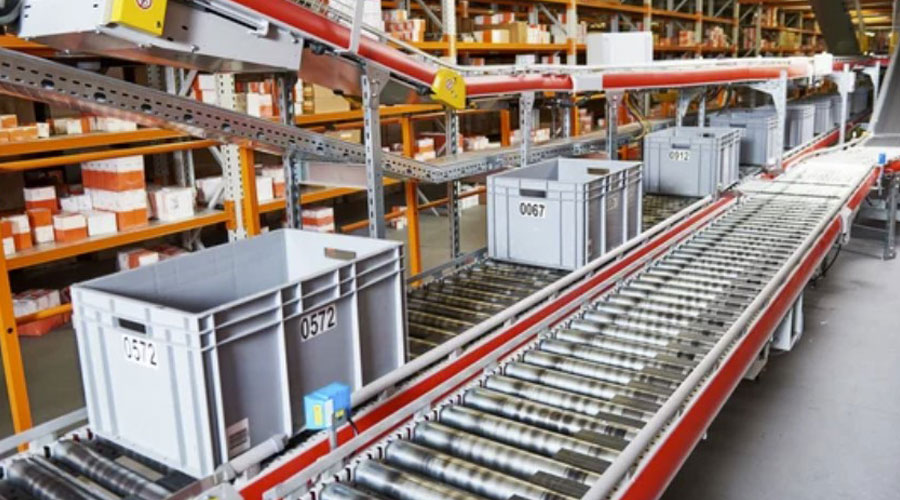For small businesses, effective asset tracking can be a game-changer. The ability to monitor and manage assets efficiently can lead to significant cost savings, improved productivity, and better decision-making. In an era of increasing competition and rapidly evolving technology, small businesses can’t afford to overlook the benefits of asset tracking.
In this article, we will explore why asset tracking is crucial for small businesses, the challenges they face, and how implementing asset tracking solutions can lead to better outcomes.
Asset Tracking isn’t Just for Large Organizations
Asset tracking is often associated with large corporations, but small businesses are frequently more vulnerable to asset loss, downtime, and inefficiency. With tighter margins and fewer backup resources, even minor asset issues can have an outsized impact.
Industry data highlights why asset tracking matters at the small-business level:
- Studies estimate that organizations can lose track of up to 30% of fixed assets without automated tracking (often cited in asset management and RFID literature).
- Employees spend an average of 20–30 minutes per day searching for tools, equipment, or inventory, translating into thousands of dollars in lost productivity annually—even for small teams.
- Untracked or poorly maintained assets can increase maintenance and replacement costs by up to 30%, draining capital that could otherwise support growth.
For small businesses, asset tracking isn’t about complexity—it’s about visibility. Knowing what assets you have, where they are, and how they’re being used helps reduce waste, prevent loss, and make smarter decisions without adding overhead.
As technology becomes more affordable and easier to deploy, asset tracking has become a practical, high-ROI tool for businesses of any size.
Asset Tracking Needs are Changing
Studies show employees can spend up to 20% of their time searching for misplaced equipment, while 10–20% of business assets are lost, stolen, or underutilized over their lifecycle. As operations scale, knowing what assets exist, where they are, and how they’re used is essential.
Asset Tracking Challenges Faced by Small Businesses
Despite the advantages, small businesses often encounter challenges when implementing asset tracking solutions.
Some common obstacles include:
- Limited Resources: Small businesses may lack the financial and human resources needed for comprehensive asset tracking.
- Technological Barriers: Implementing asset tracking technology can be daunting, particularly if the workforce lacks technical expertise.
- Scaling Issues: As small businesses grow, the complexity of asset tracking may increase. Adaptable systems that can scale with the business are essential.
- Resistance to Change: Employees may resist changes to established workflows or the introduction of new technology.
The Importance of Asset Tracking
Asset tracking involves monitoring and managing an organization’s physical assets, which can include equipment, vehicles, inventory, and more. Small businesses often face unique challenges in this area due to limited resources and the need to maximize efficiency.
Here’s why asset tracking is crucial for small businesses:
- Cost Savings: Small businesses typically have limited capital to invest. Asset tracking can help reduce operational costs by optimizing asset utilization, preventing loss or theft, and minimizing maintenance expenses.
- Efficiency: Knowing the location and condition of assets in real-time allows for efficient allocation and scheduling. This can result in smoother operations and increased productivity.
- Data-Driven Decisions: Asset tracking provides valuable data that can inform decision-making. By analyzing asset performance and utilization data, small businesses can make informed choices about investments, repairs, and replacements.
- Compliance and Reporting: In some industries, regulatory compliance is critical. Asset tracking ensures that businesses can provide accurate records and reports, reducing the risk of penalties and legal issues.
- Customer Satisfaction: Timely and accurate asset tracking can translate into better customer service. Small businesses can meet customer demands more effectively when they have visibility into their assets and inventory.
How Small Businesses Use Asset Tracking—By Industry
Asset tracking delivers real value across industries, especially for small businesses where lost time or equipment quickly impacts revenue.
- Construction & Trades: Small contractors track tools, equipment, and vehicles to reduce loss, prevent theft, and avoid costly job delays caused by missing gear. Even a single misplaced tool can stall a crew for hours.
- Healthcare & Clinics: Outpatient clinics and small medical practices use asset tracking to locate shared equipment, manage maintenance schedules, and ensure critical devices are available when needed—without overbuying backups.
- Manufacturing: Small manufacturers track machines, molds, and work-in-process assets to improve utilization, reduce downtime, and support preventive maintenance.
- IT & Professional Services: MSPs and IT firms track laptops, servers, and networking equipment to prevent loss, simplify audits, and support accurate billing and lifecycle management.
- Warehousing & Distribution: Smaller warehouses use asset tracking to monitor pallets, carts, forklifts, and inventory locations—improving picking speed and reducing search time without enterprise-level systems.
Across these industries, asset tracking helps small businesses do more with less—reducing waste, improving accountability, and creating visibility that supports growth without adding complexity.
Asset Tracking Technologies for Small Businesses
Small businesses have more asset tracking options than ever before—ranging from simple, low-cost tools to automated, real-time solutions. The right technology depends on factors like asset value, tracking frequency, required accuracy, and budget.
To overcome these challenges and unlock the benefits of asset tracking, small businesses can consider the following technologies:
| Technology | Strengths | Limitations | Best For |
|---|---|---|---|
| Barcodes | Low cost; simple to implement; widely used | Requires line of sight; manual scanning | Small inventories or infrequent tracking |
| RFID | No line of sight; reads many items at once; real-time visibility | Higher upfront cost; reader infrastructure needed | Shared assets, real-time tracking, growing inventories |
| BLE | Zone-level tracking; lower cost than UWB | Less precise; requires batteries | Staff badges, mobile equipment, proximity alerts |
| UWB | Extremely accurate location data | Higher cost; battery maintenance | Critical assets needing precise location |
| GPS | Strong outdoor tracking | Limited indoors; higher power usage | Vehicles, trailers, outdoor equipment |
| QR Codes | Very low cost; smartphone-friendly | Manual scans; no automation | Simple workflows and low-value assets |
Conclusion
Asset tracking is a vital tool for small businesses looking to enhance efficiency, reduce costs, and make data-driven decisions. While challenges exist, various solutions, including RFID technology, barcode systems, asset tracking software, and cloud-based solutions, cater to the unique needs of small businesses.
By implementing these solutions, small businesses can gain a competitive edge in an increasingly dynamic marketplace, streamline operations, and position themselves for growth.
Interested in RFID?
An RFID tracking system can help organizations of all sizes improve their supply chain efficiency. Contact the CYBRA team to schedule a demo today.
















